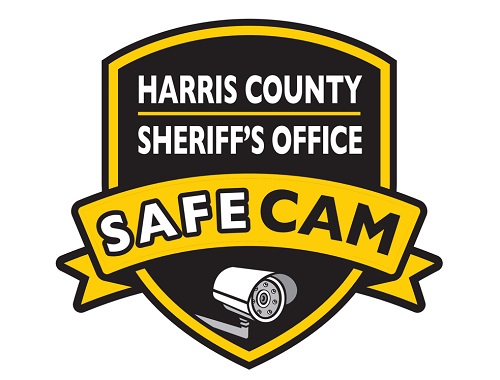
7.28.22 – KUHF-FM
The sheriff’s office says participation in the SafeCam program is free and voluntary and that participants will not be required to provided requested camera footage, but the setup raises questions about privacy and information control, according to two privacy rights advocacy organizations.
The Harris County Sheriff’s Office wants to know who has security cameras and where they are as it continues to combat crime in the Houston region.
The sheriff’s office launched a free, voluntary program last Friday called SafeCam in which it asks residents and businesses to register the exterior cameras and automated license plate readers on their properties – providing their addresses, contact information and details about their surveillance equipment, such as the type, brand, information storage method and retention period for that storage.
Lt. Matthew Ferguson of the sheriff’s office said similar programs are used in cities such as Chicago, Philadelphia and San Antonio. The goal, he said, is to build bridges with community members and be able to obtain information and evidence more quickly and efficiently to solve more crimes.
“I’ve been in the sheriff’s office for 25 years, and a lot of crimes are solved by the community,” Ferguson said. “The more information we can get and the quicker we can get to it, and if we know who has the information, we can make a big dent in bringing some of these criminals to justice and making our communities safer for everybody.”
Harris County residents and businesses can register for the SafeCam program online at https://harriscountyso.org/Services/SafeCam. Ferguson said sheriff’s office investigators may reach out to a participant if a crime is committed in their vicinity and surveillance footage is sought.
Ferguson said program participants will not be required to provide requested footage to the sheriff’s office. According to the program website, the sheriff’s office also will not have direct access to participants’ cameras and its footage, and they can opt out at any time.
But the setup raises questions regarding information control, privacy and relations between neighbors, according to Greg Nojeim, senior counsel for a Washington-based privacy rights nonprofit called the Center for Democracy & Technology. He said law enforcement officials can oftentimes circumvent camera owners by getting the footage directly from their service provider, such as Ring.
Nojeim said he also wondered what would happen if a program participant declines to furnish requested surveillance footage.
“Don’t believe for a minute that if you say no to the polite request for video footage of what may be a crime, that law enforcement will say, ‘OK,’ and go back to its office,” Nojeim said. “They will come back with a subpoena or a warrant to compel the disclosure of the information that they need for their investigation. Don’t believe for a minute that you have control over this.”
Ferguson did not respond to a Wednesday afternoon email asking how the sheriff’s office would handle such a scenario.
Savannah Kumar, an attorney for the American Civil Liberties Union of Texas, cautioned against proactively providing surveillance camera information to law enforcement, saying there is no public-safety benefit to doing so. She said even those who register for the program should consider asking criminal investigators to obtain a warrant before turning over their footage, which could potentially be used against them.
“This program is an example of law enforcement trying to expand their own surveillance network at the expense of people’s privacy,” Kumar said. “I think once programs like this are in place, it can raise a whole host of issues with way law enforcement can further expand these programs and be even more intrusive on people’s rights.”
Nojeim said he also would advise prospective participants to consider the potential ramifications of becoming known within a neighborhood as a resident who remains in close contact with police. And it could lead to uncomfortable feelings between neighbors in other ways, he said.
“Sometimes a camera can be situated so that action at the house across the street triggers the collection of camera footage,” Nojeim said. “Just ask yourself if you’d want a house across your street to be recording what happens at your front door or not.”
Other law enforcement agencies in the Houston area, such as the Montgomery County Sheriff’s Office, operate programs in which residents share surveillance footage.
Ferguson said more than 20 community members had signed up for Harris County’s new SafeCam program as of Wednesday, and he said he hoped that number would continue to grow. Along with being a free program, he said participants will not be required to make any purchases or alterations to their surveillance equipment.
“If you know a crime occurred in your neighborhood and you have a camera, we can reach out to you in real time and get that information and start working on these investigations quicker,” he said. “The quicker we can get all that evidence and the quicker we can start identifying these individuals, the quicker we can bring justice to these victims of violent crimes.”
